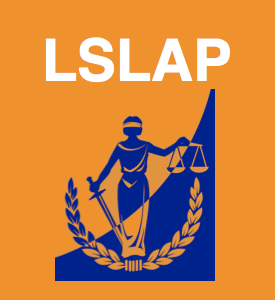Intro to LSLAP – a Clicklaw Contributor

By Emma Wilson
Peter A. Allard School of Law J.D. Candidate
Are you familiar with LSLAP? Maybe you’ve seen some of our students in court, or maybe you know someone who has used our legal services. The Law Students’ Legal Advice Program (LSLAP) is a student-run non-profit society dedicated to providing legal advice and representation to low-income people in the Metro Vancouver area.
LSLAP was started in 1969 by a small group of law students at the University of British Columbia. In 1978, we incorporated as the Greater Vancouver Law Students’ Legal Advice Society. We now have an independent Board of Directors and two paid supervising lawyers, but for the most part, LSLAP is still student-run and student-driven.
It can be very difficult for low-income earners to afford a lawyer, and even more difficult to represent themselves in a legal proceeding. LSLAP exists in order to bridge the gap between the services offered by publicly-funded legal aid and the many legal matters in which low-income people find themselves unrepresented.
We are happy to take on cases for people dealing with issues including but not limited to:
- Employment Insurance claims
- Tenant-side Residential Tenancy issues
- Human Rights Tribunal proceedings
- Immigration Review Board
- Employment Law (ESB and small claims court)
- Workers Compensation Board
- Canada Pension Plan and Old Age Pension claims
- Summary proceedings in criminal court


